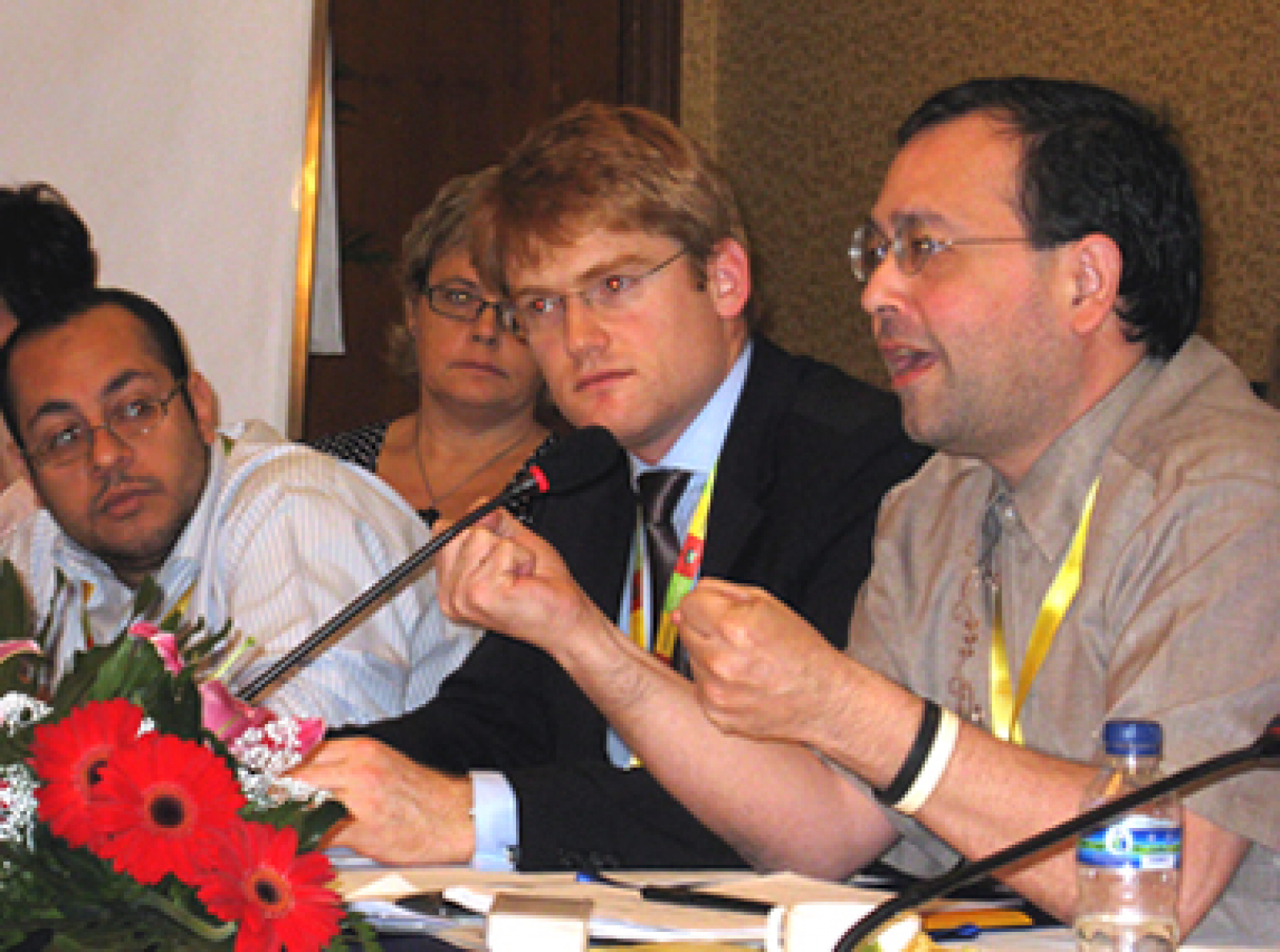
SHARE
Democratic activists worldwide are most successful when they share skills and learn from each other across ideologies and cultures. The World Movement for Democracy (WMD) provided such a global forum in Jakarta, Indonesia, where activists, practitioners, academics and policy makers generated ideas for promoting and strengthening democracy. The session, the WMD's sixth assembly, was held April 11 – 14 and brought together more than 600 participants from more than 100 countries under the theme,"Solidarity Across Cultures: Working Together for Democracy."
NDI has been an active participant in the Movement since the first assembly in New Delhi, India, in February 1999, organizing workshops at each meeting and working to ensure participation by key groups, such as political party representatives and parliamentarians.
At the Jakarta meeting, NDI organized a panel on the role of party internationals in fostering democratic parties. These groupings of political parties with similar ideologies find it increasingly important to work together to promote transparency and inclusion within their member parties. Alberto Ruíz-Thiery of Centrist Democrat International, Emil Kirjas of Liberal International and Luis Ayala of Socialist International said the party international networks allow like-minded parties to learn from one another and promote their ideology at the global level. Each international has its own membership application process as well as mechanisms for ensuring that member parties embody the principles of the grouping. Presenters acknowledged differences among the ideologies, but said there is much more that unites them, including their broad support for democracy and political parties that operate according to democratic principles.
Ivan Doherty, NDI senior associate and director of political party programs, who moderated the discussion, noted that "the development of transparent and accountable political parties worldwide transcends traditional partisan politics and the role the party international organizations play in this endeavor — individually and jointly — is a critical one."
Panelists recommended that democratic activists and political leaders engage each other more effectively through the Movement and the party internationals, and that more effective mechanisms should be developed to help party internationals monitor their members' compliance and respect for democratic principles.
Representatives from the International Federation of Liberal Youth (IFLRY) and the International Young Democrat Union (IYDU) proposed that youth groups explore ways to work across ideologies to increase political participation by young people, help bridge gaps between politicians and civil society, raise awareness about threats to freedom and promote non-violence.
Another NDI workshop on technology innovations for accountable governance and women's participation focused on the use of new communications technologies, such as cell phones and social networks, that present unprecedented opportunities for citizen activism. Clay Johnson of the Sunlight Foundation, Oscar Salazar of ¡Cuidemos el Voto! and Tristanti Mitayani of iKNOW Politics in Asia shared their experiences using technology to increase access to information about the U.S. Congress, monitor elections in Mexico and connect women across the globe to share experiences and tools in political participation. Presenters engaged participants in a discussion on the impact technology can have in creating citizen-led social and political change and strengthened democratic development. Chris Spence, NDI's chief technology officer, moderated the workshop.
"Some of the innovations that were discussed today promise to greatly improve the ability of democrats around the world to better hold their governments accountable and expand citizen participation in politics," Spence said. "They include citizen reporting using crowdsourcing methods, new ways to organize and visualize large data sets from governments that make it accessible to citizens, employing mobile phones in new ways for organizing activists, and supporting women in politics through online organizing and social media."
The World Movement for Democracy was initiated by the Washington, DC-based National Endowment for Democracy and exists to "strengthen democracy where it is weak, to reform and invigorate democracy even where it is longstanding, and to bolster pro-democracy groups in countries that have not yet entered into a process of democratic transition."
Pictured above: Participants at the session about party internationals
Published on April 20, 2010


